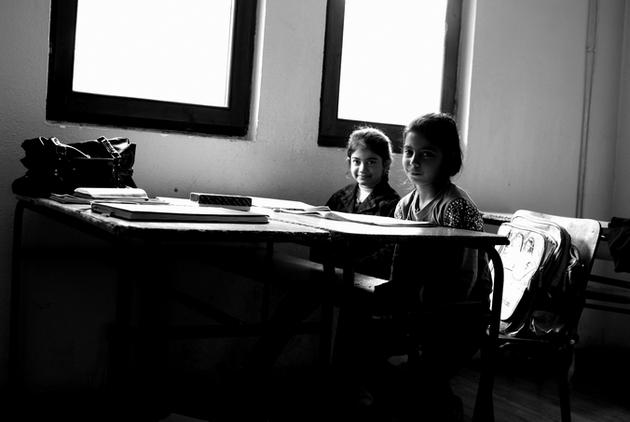Thousands of children illegally in Czech "practical primary schools"

Czech Radio reports that thousands of children who could attend normal primary schools are being instructed according to curricula designed for pupils with "light mental disability" even though such instruction is against the law. On the other hand, some schools in the Czech Republic today are managing to educate Romani pupils together with everyone else. While this depends on teachers’ approaches, it primarily depends on pupils’ parents.
"I have had the experience of needing to convince parents they should be proud of their children for doing well at primary school because of their innate capabilities and intellect," says Ivana Rosová, director of the Grafická Primary School in Prague. "The parents wanted to reassign their child to a ‘special school’, and their reasons were that their children’s friends didn’t have to do anything in the ‘special schools’ and had a peaceful life there overall."
Reporter Klára Bílá has determined that some children are wrongly attending the "practical primary schools". According to the law, no one can send a non-disabled child to such a school, even when their parents want them there.
First Deputy Education Minister Jiří Nantl admits this is happening. "The Czech School Inspection Authority must address this and is already following it. We want to resolve this matter by revising the diagnostic processes," he promised.
Nantl believes the reasons non-disabled children sometimes end up in the "practical primary schools" are obvious. "I think we all suspect that in many cases, during the diagnostic process, school directors are either giving in somewhat to parents’ wishes, or the parents are not being correctly informed in some cases," he mused.
International criticism has fallen on the Czech Republic for five years ever since the European Court of Human Rights ruled that Romani children are being discriminated against in the Czech schools and ordered the country to correct the situation. Amnesty International says the situation has not changed since then.
According to that judgment, the Czech Republic violated the right to education by unjustifiably assigning 18 children to the former "special schools".
In the interim, the Czech Education Ministry has designed a document called the National Action Plan which is meant to ensure equal access to education. That plan is now being revised. The authorities have also issued methodological recommendations to the schools on these issues.
According to the most recent investigation by the Public Defender of Rights, 35 % of the pupils in the former "special schools" are of Romani origin. However, the Czech School Inspection Authority is now pointing out that the numbers of Romani children in those schools are falling.
"The number is now roughly 8.6 % smaller than it was in 2009 and 2010, even though rigorous distinctions have yet to be made between the kinds of support provided to pupils who are socially disadvantaged and the kinds of support provided to pupils who are ‘lightly mentally disabled’. Those kinds of support are still confused under the same heading," confirms Deputy Central School Inspector Ondřej Andrys.
At the "practical primary schools", even non-disabled children study a restricted curriculum. Their proficiency can fall behind that of an ordinary primary school by roughly two academic years. Their chances at further education and jobs are therefore negligible.